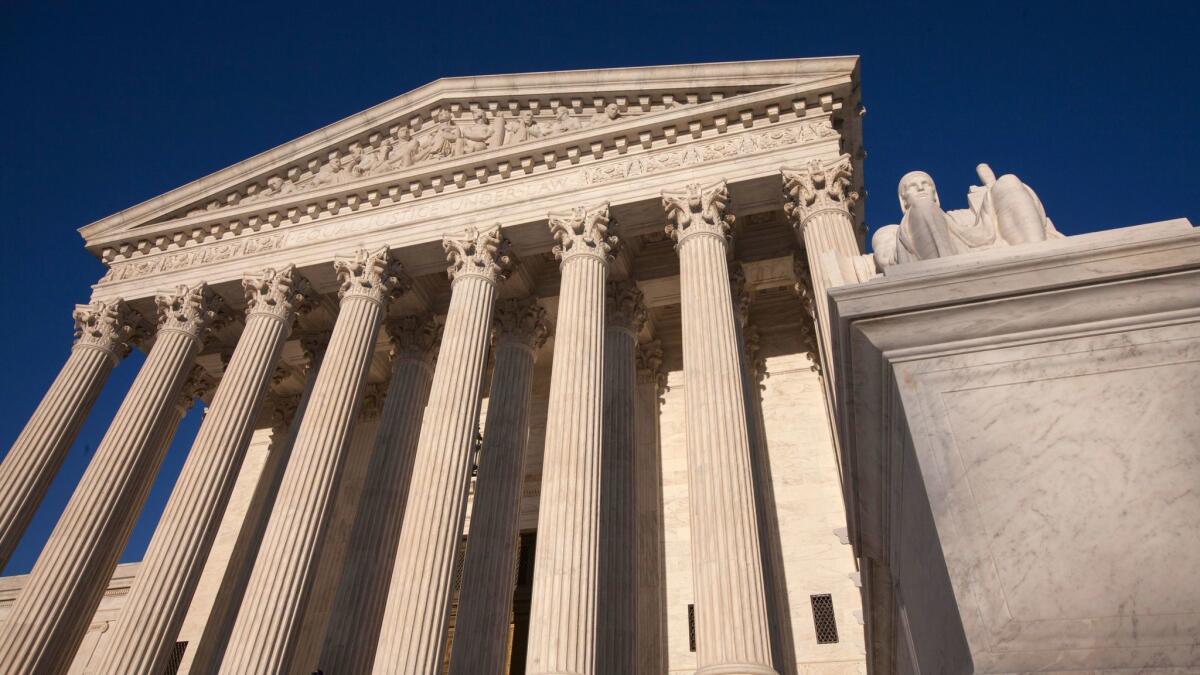Editorial: The Supreme Court should uphold a warrant for ‘overseas’ emails

In 2012, Chief Justice John G. Roberts Jr. told a university audience that the challenge for the Supreme Court for the next 50 years would be “how we [adapt] old, established rules to new technology.”
That comment is usually quoted in connection with technological changes that have required the court to expand protections for personal privacy. For example, in 2014, in an opinion by Roberts, the court held that police generally must obtain a warrant before searching the smartphones of people they had arrested.
But sometimes a shift in technology can change the legal rules that come into play, potentially working against the legitimate needs of law enforcement. That’s the case with a dispute the court has agreed to hear involving an attempt by federal prosecutors to obtain emails of a suspect in a drug investigation.
Although the government obtained a warrant based on probable cause, and although the alleged criminal activity apparently occurred in the U.S., a federal appeals court held that Microsoft didn’t have to turn over the emails because they happened to be stored at a data center in Ireland.
The U.S. 2nd Circuit Court of Appeals ruled that the law under which the warrant was issued — the Stored Communications Act of 1986 — can’t be enforced outside the United States. “Neither explicitly nor implicitly does the statute envision the application of its warrant provisions overseas,” wrote Judge Susan L. Carney.
Carney noted that when Congress passed the law, electronic communications weren’t ubiquitous or global. But today’s internet effectively eliminates the distance between the computers connected to it, raising the question of whether emails that can be instantly accessed from the United States should really be considered as existing “overseas.”
In a concurring opinion, Judge Gerard E. Lynch acknowledged that employees of a firm such as Microsoft can “provide the relevant materials to the demanding government agency without ever leaving their desks in the United States.” Lynch suggested that Congress should revise this “badly outdated statute.”
It’s true that Congress could amend the Stored Communications Act to make it clear that companies must comply with warrants such as the one in this case. But the Justice Department believes that the court can spare Congress the trouble by holding that information obtainable “with the click of a computer mouse” is subject to the law as it exists. We agree.
Sometimes technology companies are right to resist requests for cooperation from law enforcement. We supported Apple, for example, when it opposed a demand by the Justice Department that it devise technology to help the FBI break into the locked iPhone of one of the San Bernardino shooters. But in this instance, the government’s case is reasonable.
Follow the Opinion section on Twitter @latimesopinionand Facebook
More to Read
A cure for the common opinion
Get thought-provoking perspectives with our weekly newsletter.
You may occasionally receive promotional content from the Los Angeles Times.






